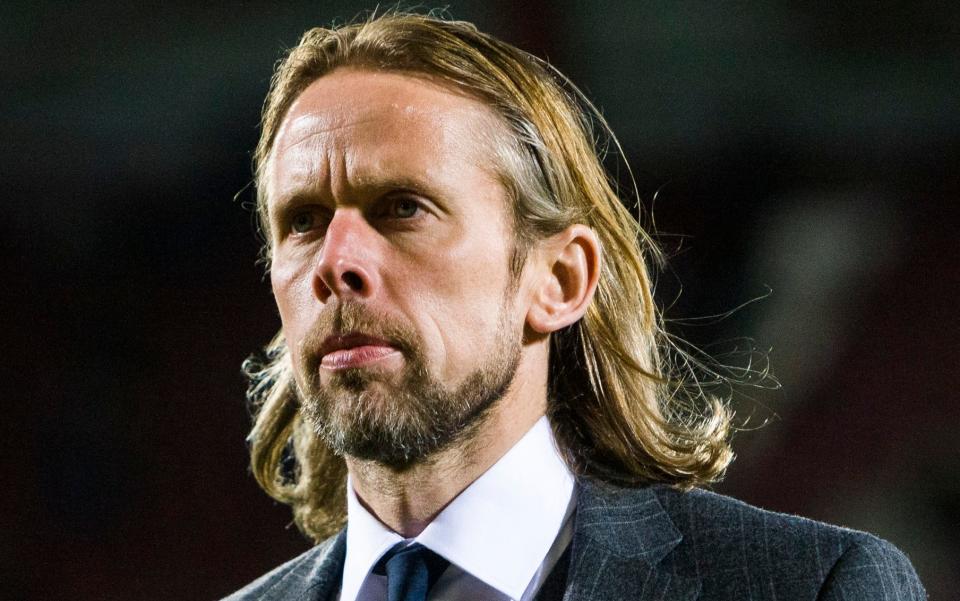Set piece coaches are the must-have accessory for Premier League clubs

Having spent more than £1 billion on new players since the Boehly-Clearlake takeover, Chelsea’s willingness to invest a comparatively meagre fee of around £1 million on a set-piece coach is not going to overly concern the club’s accountants.
If all goes to plan with Bernardo Cueva, though, then time might show this latest piece of recruitment to be one of the more significant moves that Chelsea’s new owners have made.
Cueva will be switching to Stamford Bridge from Brentford next season to become a key part of the club’s new set-piece department, and the expectation within the club will be that his arrival triggers significant improvements in one of the game’s most important areas.
Set-piece coaches are fast becoming one of football’s must-have accessories, even if some managers remain sceptical about their value. Curiously enough, Chelsea head coach Mauricio Pochettino appears to be one of those cynics. Earlier this year, he dismissed the importance of these specialists. Now, his bosses have gone out and bought one.
Ange Postecoglou, the Tottenham Hotspur head coach, is another manager with little interest in a dedicated set piece specialist. He prefers to delegate set piece training to his assistants, Mile Jedinak and Ryan Mason, rather than work with a specific expert in the field.
“I don’t separate set-pieces from everything else we do, in terms of the team we want to be,” Postecoglou said. “I wouldn’t feel comfortable bringing in specialists for one particular area.”
Other clubs, such as Arsenal, have been more keen to embrace the idea of a set piece “guru”. Mikel Arteta works with Nicolas Jover, who has received huge praise for his work in turning Arsenal into the league’s most effective team on corners and free-kicks. So far this season, Arsenal have scored 19 set-piece goals — at least four more than any other side.

Aston Villa have a specialist set piece coach, too: Austin MacPhee. Only three Premier League teams have scored more goals from dead-ball situations than Unai Emery’s team this season. It would be fair to question, though, whether MacPhee is quite so adept at keeping the ball out of Villa’s net. With 13 goals conceded from set pieces this season, Villa have the fourth worst defensive record in this area. Clearly, hiring an expert is no guarantee of success.
It is no surprise, though, that Chelsea’s executives feel a specialist might be required at Stamford Bridge. This season they have scored just seven goals from set pieces. Only four teams (Nottingham Forest, Burnley, Crystal Palace and Sheffield United) have scored fewer.
Forest also felt compelled to hire a specialist, which is understandable given their struggles on set pieces this season. With four goals scored and 18 conceded this season, their record is comfortably the worst in the division. Simon Rusk, formerly head coach of England under-19s, started at the club in December.
In a competition as competitive as the Premier League, set pieces can make all the difference. The argument in favour of hiring a specialist is that, if it might shift these odds in your favour by even the tiniest fraction, then it is worth doing.
Generally, these specialists also focus on throw-ins, as well as corners and free-kicks. Liverpool previously collaborated with an external throw-in expert, Thomas Gronnemark, but now work on this internally (coaches Peter Kravietz and Pep Lijnders are in charge of set pieces).
At Anfield last week, Manchester City demonstrated the importance of the small details on set pieces. Their opening goal, scored by John Stones, was a moment of genius which stemmed from the brain of Carlos Vicens, Pep Guardiola’s set piece specialist.
The strategy involved Nathan Ake nudging Liverpool’s Alexis Mac Allister out of position at the near post, allowing Stones to attack a fizzed low delivery from Kevin De Bruyne. “Carlos worked hard on it in training,” said Stones. “We spotted this and we worked on it, and it came off.”
This is not to say, however, that set-piece specialists are producing such moves every week. The temptation is to think that these coaches are constantly devising new ways to score goals but, as their number has risen over recent years, the proportion of set piece goals in the Premier League has actually decreased.
The specialists, on the whole, are proving better at keeping the ball out of their net than putting it in the net of their opponents. Over the past four seasons, including this campaign, 20.55 per cent of the goals in the Premier League have been scored from set pieces. Before the start of the 2020/21 season, that figure stood at an average of 24 per cent since the beginning of the Premier League.
The argument against set piece coaches is that it is the ability of the players that makes the difference. The quality of the delivery, especially, is crucial. The best set piece strategy in the world still requires a player capable of putting the ball in the right area at the right pace, as De Bruyne did at Anfield.
“If you have got David Beckham on a free-kick, you don’t need a set piece coach,” said Postecoglou. Pochettino made a similar point, referencing West Ham’s James Ward-Prowse. “You add a player like him, you increase the percentage,” he said.
Perhaps more than ever, football is a percentages game. Pochettino may not think a specialist coach can affect those percentages in a meaningful way but plenty of others do, and it is easy to see why clubs such as Chelsea are worried about missing out on football’s latest trend.

